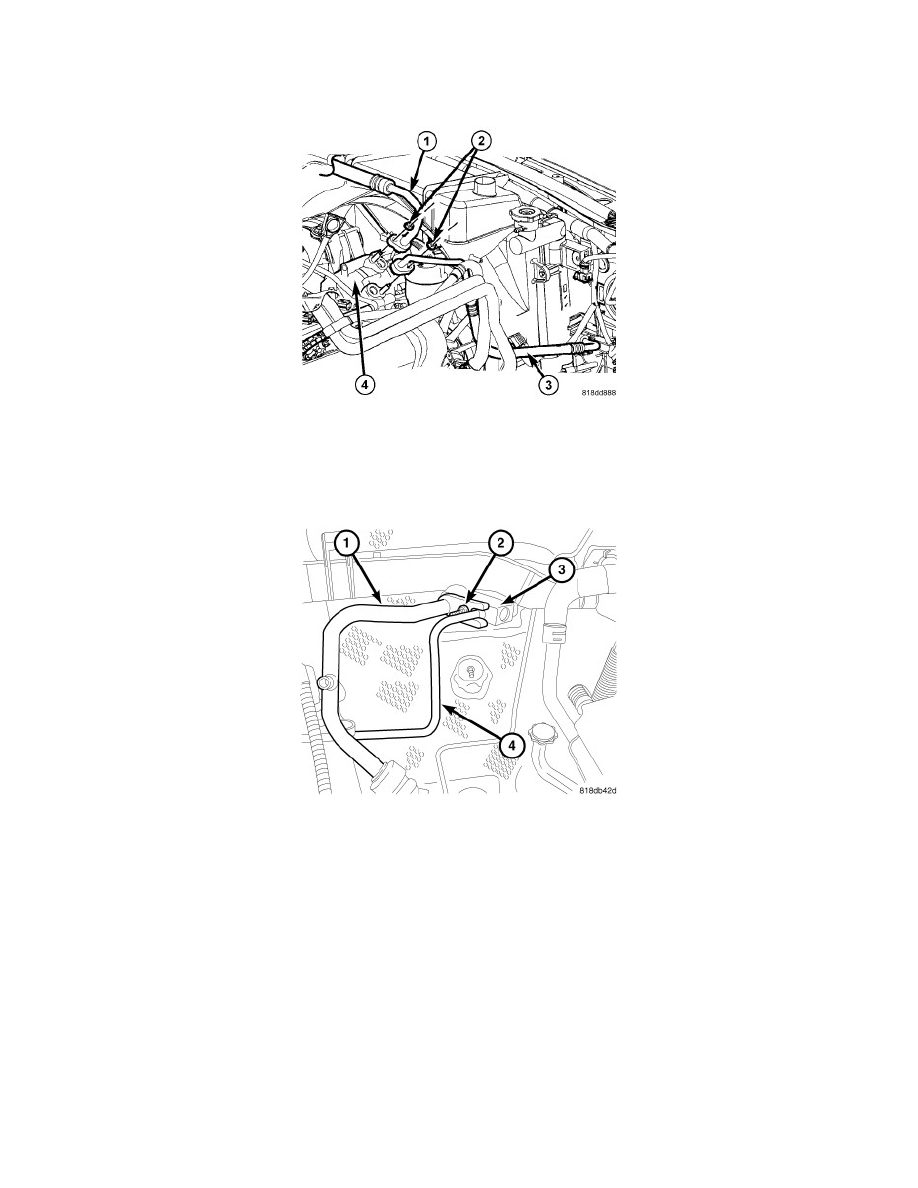Liberty 4WD V6-3.7L (2009)

WARNING: Refer to the applicable warnings and cautions for this system before performing the following operation See: Heating and Air
Conditioning/Service Precautions/Warning and See: Heating and Air Conditioning/Service Precautions/Caution . Failure to follow these
instructions may result in possible serious or fatal injury.
1. Disconnect and isolate the negative battery cable.
2. Recover the refrigerant from the refrigerant system See: Heating and Air Conditioning/Service and Repair/Refrigerant System Recovery.
3. Remove the air cleaner housing.
4. Remove the nut (2) that secures the A/C suction line (1) to the A/C compressor (4).
5. Disconnect the A/C suction line from the A/C compressor and remove and discard the O-ring seal and gasket.
6. Remove the nut (2) that secures the A/C suction line (1) and the A/C liquid line (4) to the A/C expansion valve (3) and disconnect the lines from
the valve.
7. Separate the A/C liquid line from the A/C suction line and remove the suction line from the engine compartment.
8. Install plugs in, or tape over the opened refrigerant line fittings and the compressor and expansion valve ports.
A/C Suction Line - Installation
3.7L ENGINE
CAUTION: Be certain to adjust the refrigerant oil level when servicing the A/C refrigerant system See: Heating and Air Conditioning/Service
and Repair/Refrigerant Oil Level . Failure to properly adjust the refrigerant oil level will prevent the A/C system from operating as
designed and can cause serious A/C compressor damage.
NOTE: When replacing multiple A/C system components, refer to the Refrigerant Oil Capacities chart to determine how much oil should be
added to the refrigerant systemSee: Heating and Air Conditioning/Service and Repair/Refrigerant Oil Level .
NOTE: Replacement of the refrigerant line O-ring seals and gaskets is required anytime a refrigerant line is disconnected. Failure to replace
the rubber O-ring seals and metal gaskets could result in a refrigerant system leak.
